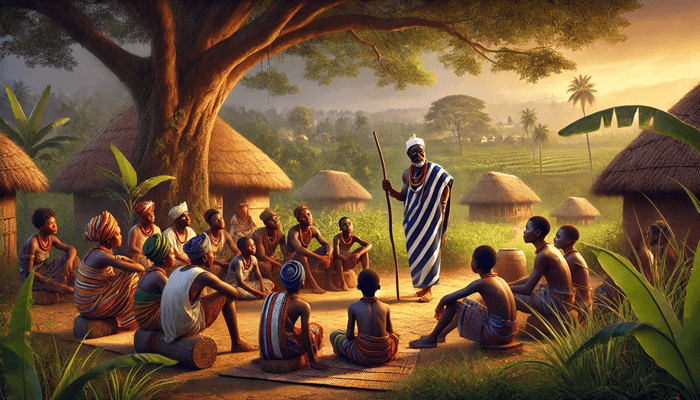Igbo is one of the Niger-Congo languages spoken by the Igbo people of southeastern Nigeria. It is not just a means of communication, it is the very bedrock of Igbo identity, culture and heritage. Igbo proverbs, often called “the palm oil with which words are eaten” one of the most interesting features of the Igbo language. In that regard, proverbs in Igbo society are not just mere linguistic devices; rather, they hold a treasure of wisdom, history, and values.
The Igbo Language: A Medium of Identity
Igbo language is entrenched in the social fabric of the speakers. It is a tonal language and is replete with vocabulary and idiomatic phrases that express complicated thoughts and feelings. The Igbo people carry above their traditions, beliefs, and values through the language from one generation to another. It is a unifying element among the various Igbo subgroups and is a marker of cultural identity.
In a traditional Igbo society, language is as a bridge to the spirit world. Rituals, songs, and folklore are juts some of the things often performed in Igbo, further solidifying its place in religious and cultural practices. As the medium of oral literature, it also passes its myth, legendary, and historical narrative that houses the collective memory of community.
Proverbs: The Soul of Igbo Communication
Igbo communication has been said to be proverbs. They are terse, metaphorical sayings that capture deep truths, providing guidance, moral lessons and wisdom. In Igbo culture, the command of proverbs reflects intelligence and learning. Well, that speaks volumes—literally: a person who never talks with proverbs is usually literally without depth and insight.
Functions of Proverbs in Igbo Society
Instruction in Ethics: Proverbs teaches ethical values and social norms. The Igbo, for example, have a saying, “Ebe onye dara ka chi ya kwaturu ya,” (Where a person falls is where their god will lift them); from this, resilience and faith in the face of adversity is a lesson.
Conflict Resolution: Elderly Igbo people use proverbs when resolving conflict at their meetings. A proverb can express a message better than bluntly telling someone what to do, which may be too direct or rude.
Historical and Cultural Preservation: Many proverbs serve as a means to capture historical events or cultural practices. For instance, “Anaghi amu aka ekpe n’aka nka,” (One does not learn to use the left hand in old age) highlights the significance of learning traditions from a young age.
Entertainment: Proverbs are a way to spice up storytelling, making it more engaging while also teaching important morals.
Diplomatic Communication: Proverbs carry messages indirectly, which enables speakers to communicate criticism, advice or praise diplomatically.
The Art of Using Proverbs
In Igbo culture, using proverbs is an art. Context is everything, as the same adage can mean different things depending on its usage. For example, the saying, “Ihe onye metara, ya buru,” (What one sows, one reaps) can be a warning against evil-action or encouragement to keep doing good.
Traditionally, younger generations learn proverbs through informal educational settings, like family gatherings, communal storytelling, and observation of elders. This transmission keeps alive the cultural wisdom embedded in proverbs.
Challenges and Preservation Efforts
Both the Igbo language and Igbo proverbs are struggling with in modern society, despite their cultural importance. English, as the global lingua franca and Nigeria’s official language, has caused the use of indigenous languages to decline. The increasing urbanization and migration, along with contemporary education systems, have also contributed to this decline.
This sounds like a cursory remark, but that extra information is well-nigh an endangered native species and there are attempts to reinvigorate it. Language preservation initiatives, academic institutions, and cultural organizations are also working to document Igbo proverbs, develop educational materials, and encourage their use in literature and media.
In the life of the Igbo people, the Igbo language and its proverbs are inextricably interwined in the cultural and social dynamics. They are carriers of knowledge, instruments of exchange, markers of identity. In a fast-changing global age, saving this linguistic and cultural treasure is crucial for the rich panorama of human expression. So, by highlighting the richness and significance of Igbo proverbs, we can make sure that the teaching passed down from generations is kept alive and help us shine brighter in our today and tomorrow.
